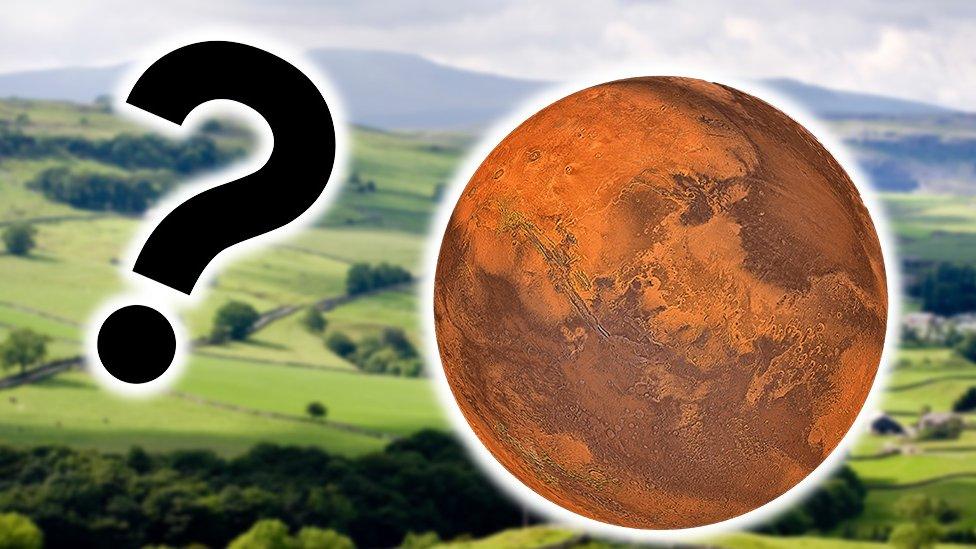Life on Mars: Why a mine in Yorkshire could be key to helping us understand the Red Planet
- Published
- comments

More than a mile beneath ground in the North Yorkshire countryside, there's a mine that could teach us more about living on Mars.
A team of scientists has turned an unused mine into a lab to study how humans manage in extreme conditions.
Tunnels are being built through old rock salt deposits, and should recreate the environment that people could experience when working in caverns on Mars or the Moon.
They specifically want to look at medical treatments, and how these can be impacted by different environments, such as being underground.
The mine used to be used to produce potash - which is used in plant fertilizers
Bio-SPHERE
This is the official title of the project, and it stands for Biomedical Sub-surface Pod for Habitability and Extreme-environments Research in Expeditions.
That's a bit of a mouthful - but it basically means creating a place underground to test medical treatments in extreme environments, like being in a cavern.
It's been set up by the University of Birmingham, which has taken over a space that used to be a mine, near Staithes in North Yorkshire.
The team will be in the small lab, underground, cut off from the surface and without much access to materials or equipment.
Boulby mine is one of the deepest mines in Europe
Why has Bio-SPHERE been created?
On Mars and the Moon, there is lower gravity, which means people will have lower bone density and other medical issues.
They will also face other threats - like extreme temperatures, meteorite impacts, and high doses of radiation.
Scientists think the best way to get around this would be for astronauts to work underground in caverns.
However, if they come across any medical emergencies, or if someone needs treatment underground, the astronauts will need to learn how to treat each other without asking for emergency help.
This is because it could take a while for communication to get back to base.
Dr Alexandra Iordachescu, who is leading the first part of the project, says the team hopes to discover how to do this using conditions similar to Mars, by being underground without much space.
This isn't the only space preparation mission on the go at the moment - click here to learn about Dune Alpha and Nasa's plan to prepare astronauts for Mars.
- Published14 April 2023
- Published27 April 2023
